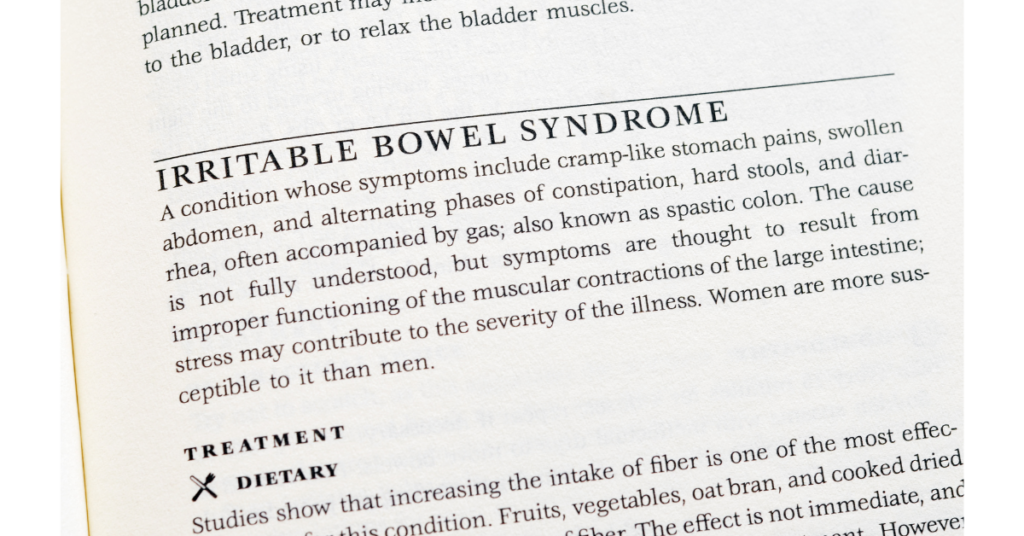What is Irritable Bowel Syndrome (IBS)?
IBS affects about 10-20% of the population and is also known as spastic colon / bowel colitis, colitis, intestinal neurosis, mucous colitis, and functional bowel disease.
IBS refers to a collection of symptoms that appear due to irregular muscular contractions of the digestive tract. As a result of these abnormal contractions food accumulates in the digestive tract, leading in turn to a build-up of toxins and mucus in the intestines.
Defecation is therefore affected, resulting in gas, diarrhoea or constipation, and a whole host of other symptoms.
Signs and symptoms
The symptoms are very diverse and can include the following:
Bloating
Flatulence
Intermittent bouts of diarrhoea and / or constipation
Abdominal pains / spasms
Nausea
Fatigue
Mucousy / bleeding / foul smelling stools
Weight fluctuations
Anxiety / depression
(See also our articles on Constipation and Diarrhoea)
Causes
There are many causes of IBS. Anything that affects the proliferation of friendly bacteria in the gut can lead to this syndrome.
Some factors that may predispose one to IBS include:
Food allergies: The most common allergens include wheat, sugar, yeast, milk, beef, pork, corn, and orange juice
Excessive stress: Stress directly affects the gut, causing symptoms such as tightness, cramps, and pain
Antibiotic and steroid use
Infestation with intestinal parasites
A low-fibre diet
Laxative use
Diagnosis
IBS is quite difficult to diagnose since many of its symptoms are also found in a number of other conditions such as coeliac disease, diverticulitis, intestinal candidiasis, Crohn’s disease, and ulcerative colitis.
A variety of tests can be taken to determine whether or not the problem is indeed IBS. These include:
A thorough stool test
An intestinal permeability probe
A blood serum analysis for gut fermentation products
An enzyme-linked immunosorbent assay (ELISA)
A Heidelberg Ph gastric test
Complete blood count
Erythrocyte sedimentation rate, and / or serum protein concentration
Conventional Treatment Strategies
Drugs: Anti-spasmodics such as peppermint oil (Mintec, Colpermin), mebeverine, or alverine are used in an attempt to relax the muscles of the intestines.
Anticholinergics: Used to block the effects of parasympathetic nerves controlling the rhythmic waves of contractions in the intestines.
Anti-diarrhoea: Drugs such as Imodium (loperamide) may also be utilised
Complementary Approach
Diet: Avoid animal fat, dairy products, wheat, coffee, orange juice, yeast, carbonated drinks, chocolate, fried foods, sugar, food additives, alcohol, and tobacco to help relieve symptoms. Many of these products may actually cause an allergic reaction in people, which in turn can lead to IBS.
A high-fibre diet (more fruit and vegetables, oats, brown rice, linseeds, and pulses) and the drinking of plenty of water are also recommended to improve bowel function. The fibre works by bulking the stools and providing the bowel muscles with something to push against. This increases transit time, preventing waste products from hanging around too long and adding more toxins to the system
Supplements
Use a bulking fibre such as psyllium to prevent constipation.
Vitamin B complex (50 mg daily), magnesium phospherine, and either evening primrose oil or GLA complex can help calm an overactive nervous system.
Lactobacillus acidophius and Bifido bacterium probiotics can be used to regulate intestinal function and relieve flatulence.
Aloe vera juice has also proved very popular amongst IBS sufferers, being valued for its soothing and anti-inflammatory qualities.
Herbs
Chamomile, peppermint, valerian, and ginger are well known for their soothing effect on the digestive system.
Relaxation Techniques
Take up yoga, tai chi, qigong, or meditation to relieve stress.


